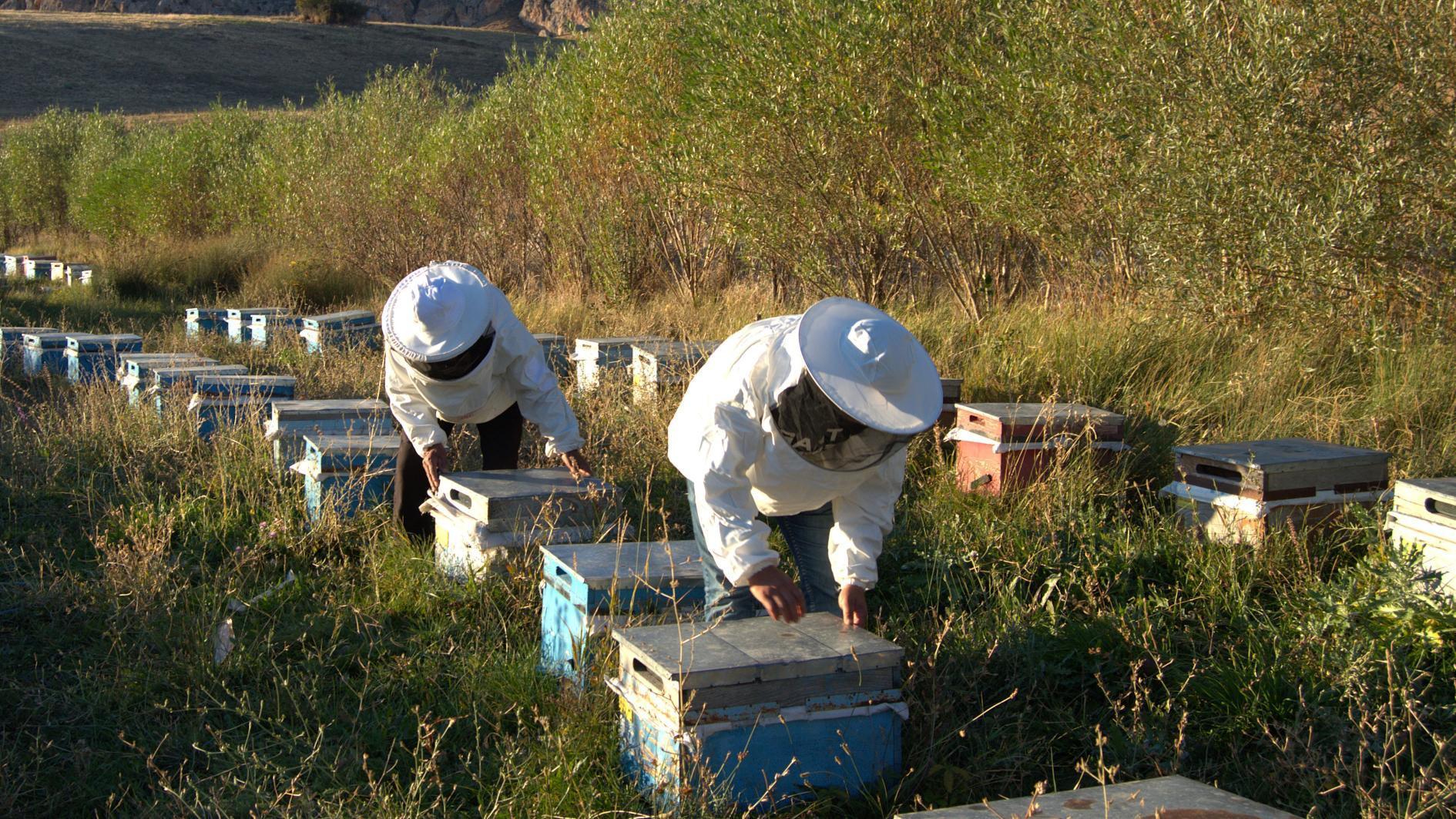
In a rural neighborhood in the eastern province of Erzurum, beekeeping has become a shared livelihood, with nearly every one of its 60 households producing honey.
With around 5,000 hives scattered across the area, the community in Çıkılgan in the city’s town of Karayazı produces between 50 and 60 tons of honey each year.
Residents say their home has turned into a kind of “factory,” where honey harvests drive both household incomes and the local economy.
Erdal Dinç, the neighborhood’s headman, said beekeeping is as important as livestock breeding for residents.
“We have a very healthy vegetation cover for honey production. Ninety-five percent of households are engaged in beekeeping,” he said. “Our village is like a factory; if a factory produces honey, so do we. It’s a major source of income for us.”
According to Dinç, the tradition runs deep.
“Beekeeping is passed down from generation to generation. We hope our children will continue it in the future,” he noted.
Villagers are generally satisfied with their income, he added, selling honey across Türkiye — including megacities such as Istanbul and Ankara — and hope to begin exporting abroad with government support.
The work can be difficult at certain times of the year, but overall, it is a comfortable profession, according to Dinç.
For producer Vedat Dinç, who has been a migratory beekeeper for three decades, the job means moving with the seasons.
In summer, he keeps bees in my own village, and in winter, he works in other provinces.
“It’s both beautiful and difficult. I have about 200 hives, and in a good season, I can harvest up to two tons. So far, I’ve received orders for nearly 500 kilograms. We’ve even applied for a patent for our comb honey.”
Another beekeeper, Özal Özen, who has been in the business for 15 years, highlighted the region’s unique conditions.
“This is one of the rare places in Türkiye for beekeeping,” he said, adding that the lack of international exports remains the sole challenge.
“Our village produces 50 to 60 tons of honey annually, which we ship all over the country. Our only challenge is that we haven’t yet opened up to foreign markets, and we need government support to reach international buyers,” he said, echoing the headman’s remarks.